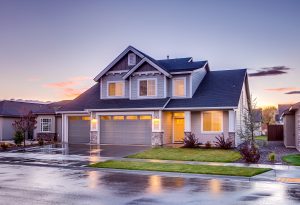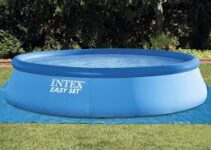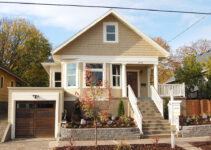Creating an energy-efficient rental property not only benefits the environment but also can attract tenants and lower operational costs.
Here are several steps landlords can take to make their rental properties more energy-efficient:
- Energy-Efficient Appliances: Install ENERGY STAR-rated appliances, such as refrigerators, dishwashers, washing machines, and HVAC systems. These appliances are designed to consume less energy, reducing utility bills for both landlords and tenants.
- LED Lighting: Replace traditional incandescent bulbs with energy-efficient LED lighting. LED bulbs are longer-lasting and use significantly less energy, contributing to reduced electricity consumption.
- Proper Insulation: Ensure the property is well-insulated to maintain a consistent temperature. Proper insulation reduces the workload on heating and cooling systems, leading to energy savings.
- Sealed Windows and Doors: Check for drafts around windows and doors, and seal any gaps. Weather-stripping and caulking can help prevent air leakage, making the property more energy-efficient.
- Programmable Thermostats: Install programmable thermostats that allow tenants to set temperature schedules based on their occupancy. This can help optimize heating and cooling and reduce energy waste when the property is unoccupied.
- Regular HVAC Maintenance: Schedule regular maintenance for heating, ventilation, and air conditioning (HVAC) systems. Clean filters, check for leaks, and ensure proper airflow to maximize the efficiency of these systems.
- Solar Panels: Consider installing solar panels on the property to generate renewable energy. While this can be a significant upfront investment, it can lead to long-term savings on electricity costs.
- Water Conservation Measures: Install low-flow faucets, showerheads, and toilets to reduce water consumption. Additionally, consider fixing any leaks promptly to avoid water waste.
- Energy-Efficient Windows: If feasible, upgrade to energy-efficient windows that are designed to minimize heat transfer. This can improve insulation and reduce the need for excessive heating or cooling.
- Smart Home Technology: Integrate smart home technology, such as smart thermostats, lighting, and energy monitoring systems. These devices allow for more precise control over energy usage and can be managed remotely.
- Encourage Responsible Tenant Behavior: Educate tenants about energy-efficient practices and encourage responsible energy usage. Simple actions like turning off lights and appliances when not in use can contribute to overall energy savings.
- Green Landscaping: Opt for native, drought-resistant plants in landscaping to reduce the need for excessive watering. Proper landscape design can contribute to overall energy efficiency.
- Energy Audits: Conduct energy audits periodically to identify areas for improvement. Professional energy audits can pinpoint specific issues and recommend tailored solutions for maximum efficiency.
- Incentives for Energy Efficiency: Offer incentives for tenants who take steps to improve energy efficiency, such as providing energy-efficient appliances or offering discounts for responsible energy consumption.
By implementing these strategies, landlords can create energy-efficient rental properties that are not only environmentally friendly but also attractive to tenants who appreciate lower utility costs and sustainable living.
For more information on how to create an energy efficient rental property, or to learn more about our property management services, click here to connect with us online.




